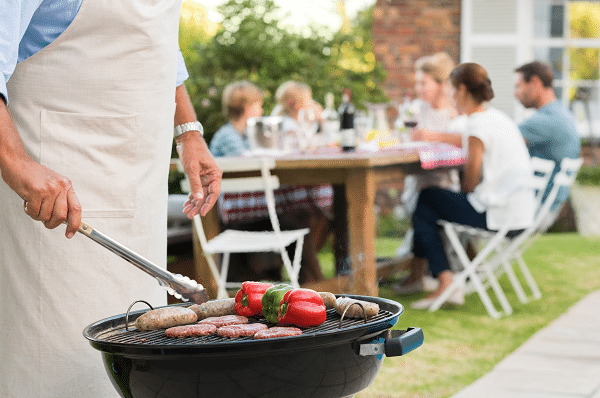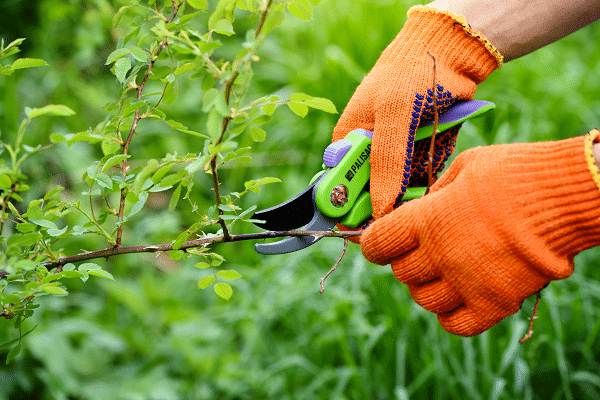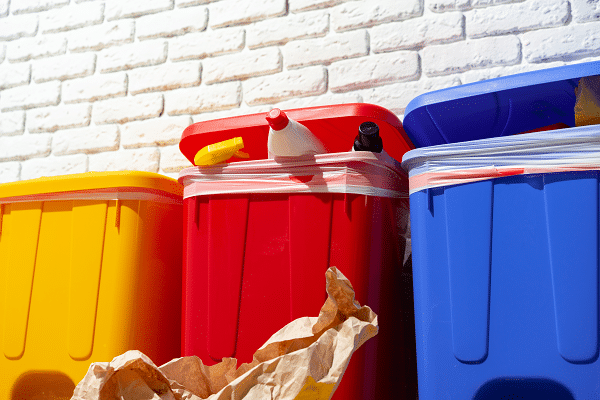Wasps and yellowjackets pose a common problem in many households and outdoor spaces. Known for their painful stings and aggressive behavior when disturbed, these insects are often unwanted guests during summer barbecues or get-togethers. Their presence not only causes discomfort but can also pose significant health risks for those with allergies. However, it’s crucial to remember that these insects also play a vital role in the ecosystem, acting as pollinators and controlling other pest populations. This blog post aims to provide a comprehensive guide to getting rid of wasps and yellowjackets.
Contents
Keep Food Covered

Wasps and yellowjackets are opportunistic feeders, drawn to human food, particularly sugary and protein-rich substances. During outdoor gatherings, it’s advised to keep all food items covered until it’s time to eat. In addition, cleaning up immediately after meals can prevent these insects from being attracted to the leftover food. Ensure that all empty beverage cans, bottles, and food containers are disposed of correctly, as the smallest remnants can attract a swarm of wasps.
It’s not only human food that attracts these creatures. Pet food, especially when left outdoors, can serve as a feast for wasps and yellowjackets. Consequently, it’s recommended to feed pets indoors during the warmer months or promptly remove their dishes once they’ve finished eating. By reducing the food sources available, the likelihood of a wasp problem can be greatly minimized.
Maintain Your Garden

Overgrown vegetation and unattended garden spaces often provide ideal nesting grounds for wasps and yellowjackets. Regular gardening, including pruning of bushes and trees, can help deter these insects. By minimizing potential nesting areas, the chance of a wasp infestation decreases. Ensure that the lawn is mowed regularly and that fallen leaves and other garden waste are promptly removed to avoid creating hiding places for wasps.
Flowering plants and water features can attract these insects as well. Consider placing bird baths and similar features away from common gathering spaces and be mindful when planting flowers with high nectar yields. By strategically planning garden spaces, it can be possible to enjoy the garden’s beauty and tranquility without the company of wasps and yellowjackets.
Seal Trash Cans

Unsealed trash cans can serve as a feast for wasps and yellowjackets, particularly if they contain food waste. Ensuring trash cans are well-sealed and the area around them is clean can make a substantial difference in deterring these insects. It is also recommended to clean trash bins regularly to eliminate any lingering odors that might attract wasps.
Another useful tip is to place trash cans as far away from doors and windows as possible. This measure prevents wasps from coming too close to the home, reducing the likelihood of a household infestation. By maintaining a clean, well-sealed waste disposal area, it is possible to reduce the appeal of the space to wasps and yellowjackets.
Use Of Traps

There are various types of wasp traps available in the market, designed to lure in these pesky insects and trap them. Such traps often contain sweet-smelling bait to attract wasps and yellowjackets. However, it’s important to be cautious when handling these traps, especially when they contain live and potentially aggressive wasps. Place these traps in areas where wasp activity has been noticed, but out of reach of children and pets.
While traps can effectively reduce the number of wasps in a particular area, they may not be a permanent solution, especially for larger infestations. It’s also worth noting that traps should be checked and emptied regularly. If a trap becomes overcrowded, new arrivals might find their way out, rendering the trap ineffective.
Deter Wasps With Strong Scents

Certain strong scents are known to deter wasps and yellowjackets. Essential oils such as peppermint, clove, and lemongrass have been shown to repel these insects. These oils can be mixed with water and sprayed around outdoor areas to create a scent barrier. Additionally, planting strongly-scented plants like wormwood, eucalyptus, or mint can also deter wasps.
Wasps and yellowjackets also tend to avoid the smell of certain spices such as cinnamon, citronella, and cayenne pepper. These can be sprinkled around outdoor areas or made into a spray, similar to the essential oils. However, it’s important to reapply these natural deterrents regularly, especially after rain, to maintain their effectiveness.
Avoid Bright Colors

Bright colors and floral patterns can attract wasps and yellowjackets as they mimic the appearance of flowers, a primary nectar source. Therefore, when planning outdoor gatherings or when setting up outdoor play areas for children, it’s advisable to avoid using bright-colored tablecloths, furniture, or clothing. Instead, consider using neutral or earth-toned colors that are less likely to attract these insects.
Lighting can also play a role in attracting these insects. Wasps are drawn to light sources, especially at night. So, when planning outdoor lighting, consider options that are less likely to attract insects, such as yellow or sodium vapor lights. These measures can help make an outdoor space less attractive to wasps and yellowjackets, reducing the likelihood of an encounter.
Call In An Exterminator

If the problem of wasps and yellowjackets becomes too significant to manage or if a nest is located close to a home, it might be time to call in professional help. An experienced exterminator has the knowledge and equipment to handle these pests effectively and safely. Before hiring, make sure to do thorough research. Look for licensed professionals with good reviews and ask about their methods to ensure they are humane and environmentally friendly.
Safety is paramount when dealing with wasps and yellowjackets, especially for those who are allergic to their stings. Never attempt to remove a nest without professional help. In many regions, exterminators offer emergency services for nest removals. Remember, it’s always better to let professionals handle situations that could potentially escalate and pose risks.
Conclusion
Managing wasps and yellowjackets involves a combination of preventative measures, proactive steps, and in some cases, professional intervention. By keeping food sources out of reach, maintaining gardens, properly sealing trash cans, and using traps or scents, it is possible to greatly reduce the presence of these insects. Bright colors can be avoided to lessen attraction, and if the infestation becomes severe, don’t hesitate to call an exterminator. Being informed and vigilant can help create a more comfortable and safer outdoor environment, ensuring enjoyable summer days without the worry of these stinging insects.


